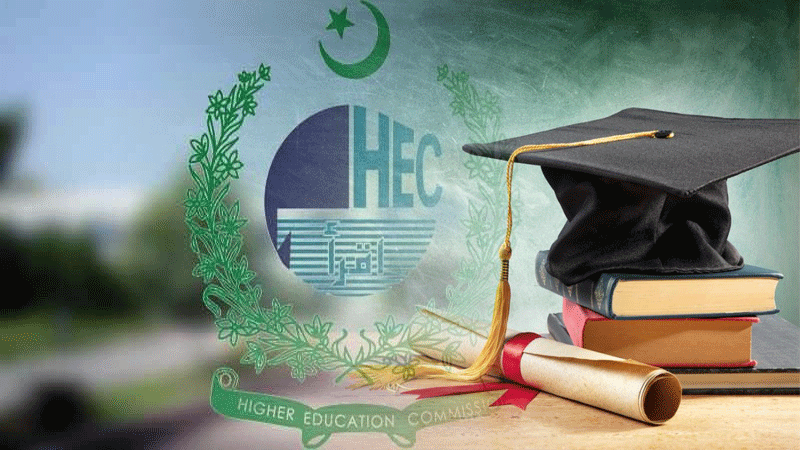HEC issued a warning to students on Monday, cautioning them to look out for higher education institutions that may be breaking the Transnational Education Policy.

The Higher Education Commission (HEC) issued a warning to students on Monday, cautioning them to look out for higher education institutions (HEIs) that may be breaking the Transnational Education (TNE) Policy.
“It has been observed with grave concern that several Pakistani institutions offering qualifications in collaboration with foreign universities under Transnational Education Policy are violating HEC policies while admitting students,” the Higher Education Commission said in a statement.
As a result, according to the officials, students are having trouble getting the Higher Education Commission (HEC) to acknowledge or equate their degrees.
In order to ensure that all legal requirements are met when granting admission, all recognised institutions in Pakistan that impart foreign qualifications have been advised, according to the statement.
Additionally, students must have completed 12 years of education in accordance with the National Qualifications Framework (NQF) and have an equivalency certificate issued by the Inter Board Committee of Chairmen (IBCC) at the time of admission into a degree programme in order for HEC to recognise or equate their degree.
The official stated, “In the event that any violation is discovered at any point, HEC shall not recognise these degrees and withdraw the No Objection Certificate (NOC) immediately.” They continued, “This information is being spread for the awareness of parents and students.”
Under the leadership of Atta-ur-Rahman, the Higher Education Commission (also referred to as HEC) was established in 2002 as a statutory body by the Pakistani government. Its primary responsibilities include funding, supervising, regulating, and accrediting the nation’s higher education institutions.
It was first founded in 1974 as the University Grants Commission (UGC), and after Atta-ur-Reforms and Rahman’s reforms, which won praise from all over the world, it took on its present form on September 11, 2002.
The commission is in charge of developing higher education policies, ensuring that they adhere to international standards, awarding academic degrees, creating new institutions, and improving existing institutions in Pakistan.